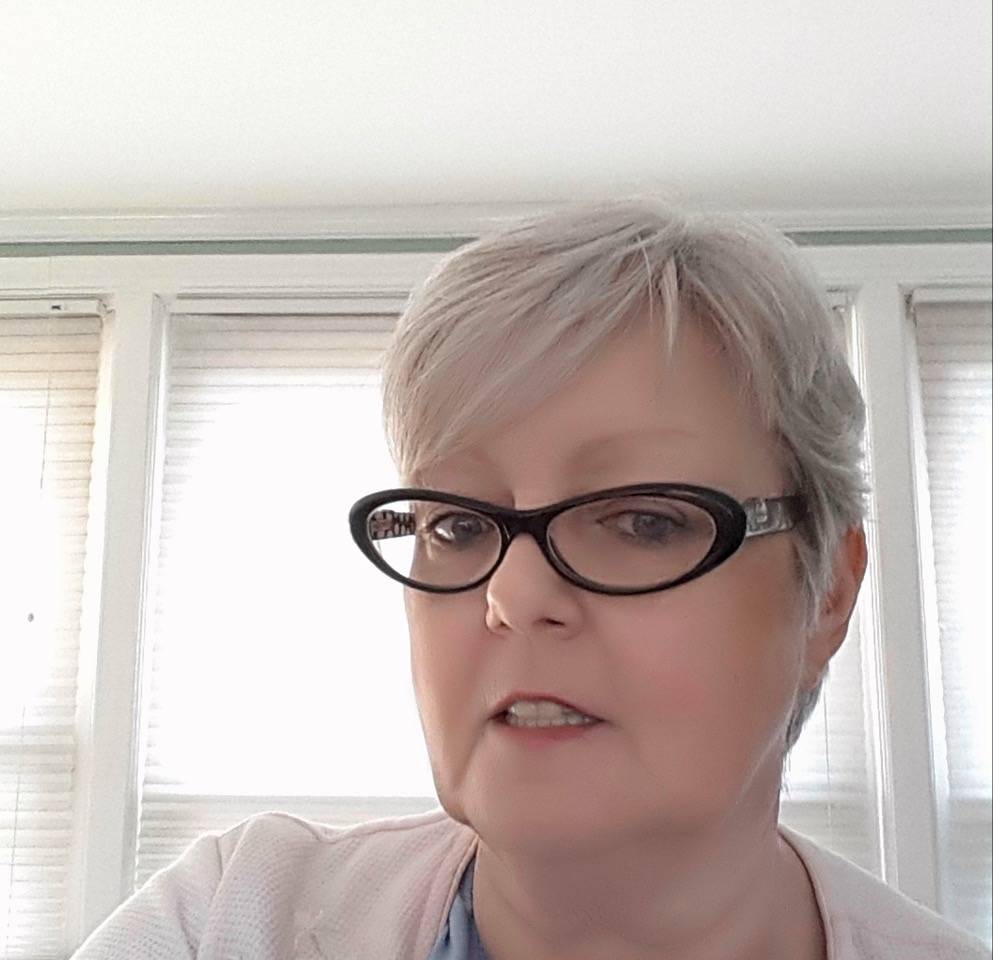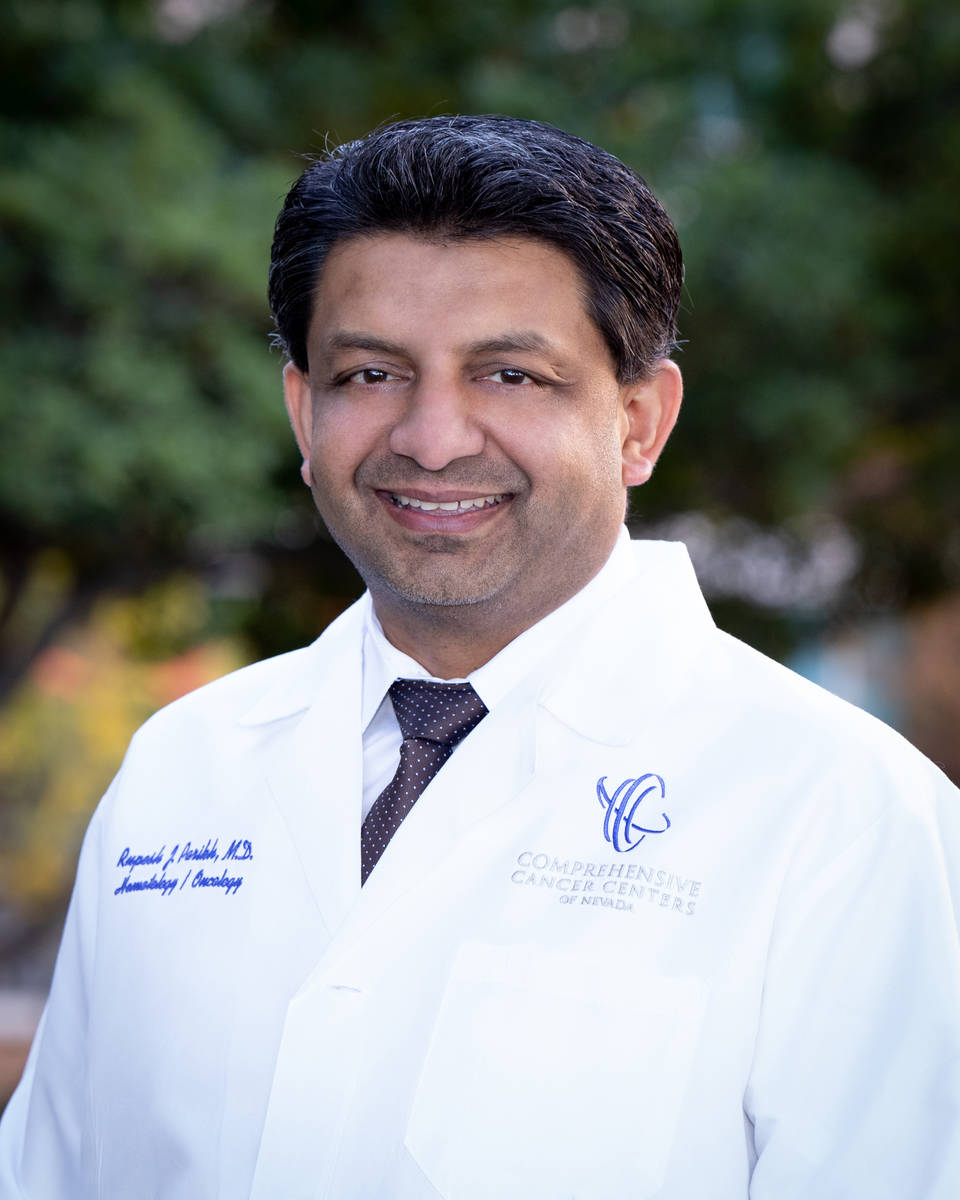Cancer treatment doesn’t stop during pandemic
When June Tatarczyk and her husband relocated to sunny Las Vegas for their retirement a few years ago, there was no crystal ball to foretell their future.
“We felt good moving here and even brought my 94-year-old mother with us,” Tatarczyk said. “That didn’t seem like a big deal because, back home in Chicago, my mother had been very healthy and independent. We were all ready for a change.”
That is until the day of the move when they landed in Las Vegas and her mother entered the hospital, soon diagnosed with chronic obstructive pulmonary disease. If that wasn’t enough to worry Tatarczyk, her husband was diagnosed with a brain tumor a few months later.
“We just got down to business and scheduled his treatment, and I really didn’t do the things I should have been doing for myself,” she said. “I was about a year late getting a mammogram but wasn’t really that concerned because nobody in my family seems to get cancer.”
In February 2020, just before COVID-19 hit the United States full-force, Tatarczyk had a mammogram and, like times in the past, was asked to have a second one due to her fibrous breast tissue.
“I wasn’t worried because my relatives have heart issues and strokes, not cancer,” she said.
But when the second mammogram led to a 3D version and then to a biopsy at the end of March, she wondered what was going on. “The biopsy’s result was cancer.”
She wanted to take action quickly, even in the midst of the pandemic, saying, “I knew I had to face it. Sometimes you have to do things you don’t like. … Hiding in the corner isn’t going to make it go away.”
She soon connected with Comprehensive Cancer Centers of Nevada oncologist Rupesh Parikh, who got her into chemotherapy quite quickly.
“Because the diagnosis was HER2-positive, which is a more aggressive cancer, and because I knew that elective surgeries were going to be delayed because of this pandemic, we opted to try to shrink the tumor with chemo first,” Parikh said. “If COVID-19 hadn’t been happening, we may have done the surgery first and the chemo subsequently.
“Initially when the pandemic began, Comprehensive Cancer Centers canceled all of our routine follow-ups, social-distanced as much as possible and took all of the precautions we could. However, when June had the original mammogram in February, she wasn’t able to feel the tumor, but by the time I saw her, she was starting to, and like I always say, cancer doesn’t sleep, unfortunately.”
He mentions that he and Tatarczyk had discussions about wearing a mask, staying away from crowds and public places, hand sanitizing and perhaps having someone else do her shopping.
“We also supported her immune system by giving her white blood cell boosters so she wouldn’t get too compromised during chemo,” he said.
“I guess it if we weren’t in these unusual times, things might have happened in a different order, but I went through four rounds of chemo first,” Tatarczyk said.
She notes that it was devastating when her hair started to fall out. As someone who usually walks up to 5 miles a day, the treatments really zapped her energy.
“Just going to the grocery store made me wonder why there aren’t chairs in between the aisles,” she said.
Scheduled for a mastectomy with M. Ferra Lin-Duffy, a breast surgeon with Comprehensive Cancer Centers, Tatarczyk is looking forward to walking her usual early morning routes again soon, although she’ll need to do maintenance chemo until March 2021, which will mark one year since her treatment began.
“You have to fit your own health care in, no matter what else is going on around you,” she said. “Make time for things like mammograms because you could be saving your own life.”
Parikh emphasized that during this pandemic, approximately 30 to 40 percent of all cancer screenings in the United States have been delayed or canceled.
“The American Society of Clinical Oncology is predicting that in the next five years, there’s going to be a lot more late-stage cancers being found, cancers that are more advanced because of the drop-offs in screenings these past six months,” he said. “My advice to patients is that if you’re due for screenings, please go. The medical facilities are open, there are no restrictions on surgeries anymore. … You shouldn’t wait any longer. If we can prevent cancer or catch it early at stage 1, that’s the goal.”
He also notes that medical offices and hospitals are now probably the safest they’ve ever been due to all of the sanitizing protocols.
As for going through all of this during such a strange time in history, Tatarczyk mentions a comment her sister made to her: “I guess if you have to have cancer, you picked a good time to do it.”
She concurs, saying, “She’s absolutely right. I wasn’t jealous of anyone going out or having a good time because nobody is. I might as well be tucked inside, recovering.”
Now, with life’s interruption of cancer hopefully behind her, Tatarczyk is looking forward to enjoying her well-deserved retirement.



















